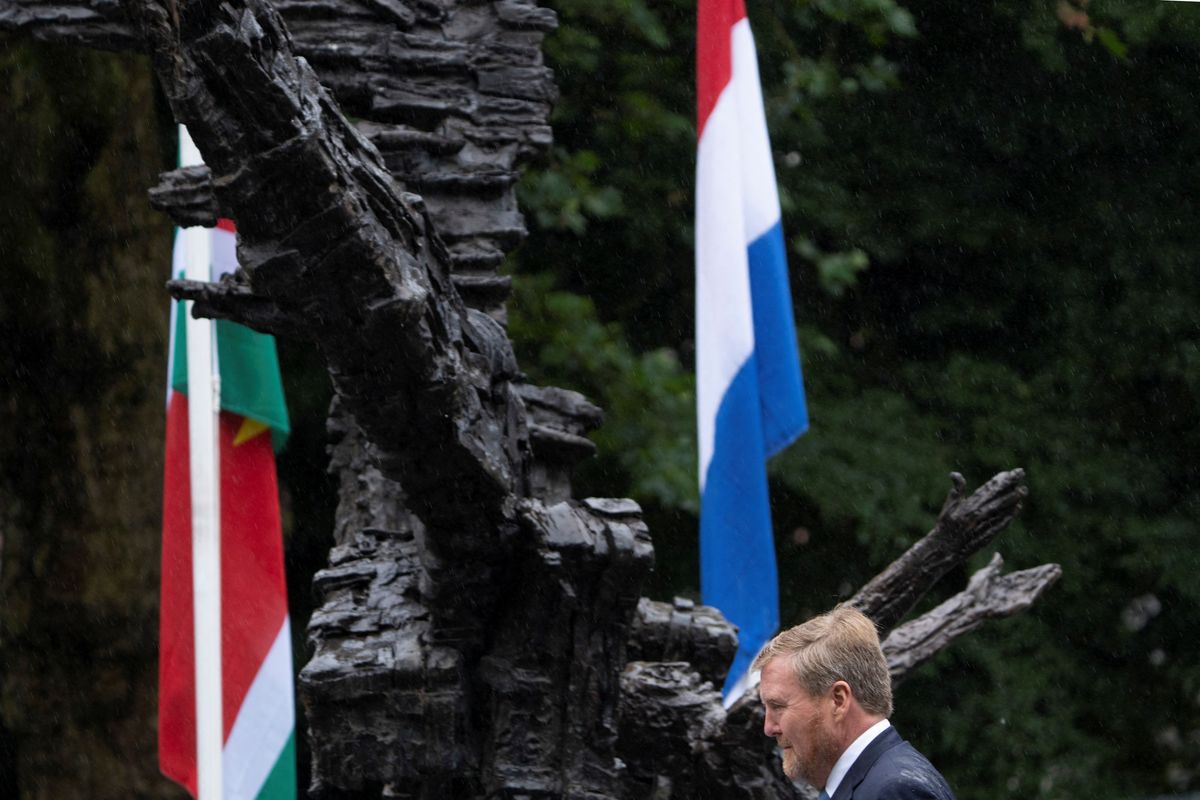The Netherlands returns cultural artifacts stolen from Indonesia and Sri Lanka
Nowadays, many postcolonial countries, like Sri Lanka and Indonesia, are trying to heal from the horrors of colonialism and build better, cooperative relationships with the countries that used to rule them.

A few minutes every morning is all you need.
Stay up to date on the world's Headlines and Human Stories. It's fun, it's factual, it's fluff-free.
The backstory: The Netherlands has a brutal colonial history that spans different regions of the world, but for this story, let’s focus on Sri Lanka and Indonesia. In the 1600s, Indonesia was colonized by the Dutch East India Company and later came under the control of the Dutch government in 1796. It didn’t become independent until over 300 years later, in 1945. Sri Lanka has a similar history, with the Dutch controlling most of it by 1665. That country became fully independent in 1948. During the centuries of colonial rule, the Dutch took home cultural objects which were often looted by troops. At the moment, there are about 300,000 colonial objects owned by the Dutch government in the Netherlands. That’s not even considering privately-owned items, including those owned by auction houses.
More recently: Nowadays, many postcolonial countries, like Sri Lanka and Indonesia, are trying to heal from the horrors of colonialism and build better, cooperative relationships with the countries that used to rule them. Part of this comes down to asking those former colonizers to return stolen artifacts.
In 2017, the Rijksmuseum (the national museum of the Netherlands) began looking into the origins of its colonial objects. Since then, it’s also been part of a pilot project to figure out a system for this kind of research, teaming up with the countries these objects were taken from. In 2022, the government set up a committee to decide what to do about artifacts originally from countries that now want them back. It’s called the Advisory Committee on the Return of Cultural Objects from Colonial Context.
The development: Last week, the Dutch government announced it would be returning some artifacts taken from Sri Lanka and Indonesia during colonial times. They include nearly 500 objects, from valuable jewels and 13th-century temple carvings to a ceremonial cannon.
On Monday, the Netherlands and Indonesia had a ceremony to hand back hundreds of these cultural items. They’re the first artifacts given back since the Netherlands set up its committee. Already, the Indonesian government has said it’ll put them on display at the National Museum of Indonesia. This is a big deal as many other countries try to decide what to do about their own stolen artifacts.
Key comments:
“We appreciate the secretary of state’s decision and regard this restitution as a positive step in cooperation with Sri Lanka,” the Rijkmuseum’s general director, Taco Dibbits, said. “The relationship and exchanges of knowledge built up between the two nations in the fields of research and common history constitute a strong foundation for the future.”
“We are really delighted. This is a very historic moment for both us, Indonesia, and the Netherlands. And the relationship between the two,” said Hilmar Farid, director general of cultural heritage at Indonesia’s Ministry of Culture. “But I think what we have achieved so far is also a very significant contribution to the global debate about returning of colonial objects.”
“I think the way that the museum world used to look at this debate in the 20th century was very much about the concern to preserve objects for generations to come, and obviously museums in Europe have the facilities to do that,” Valika Smeulders, head of the Rijksmuseum’s department of history, told The Art Newspaper. “But what changed is our viewpoint: these objects are to tell the stories of our countries, of our shared history of peoples. So what we see now as our mission is to have the objects in the places where they are best able to tell the stories that are important.”




Comments ()